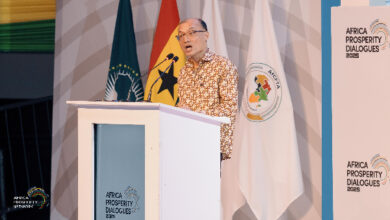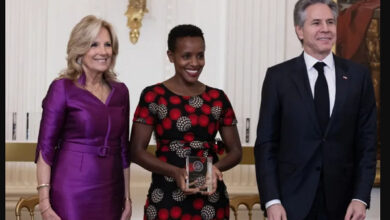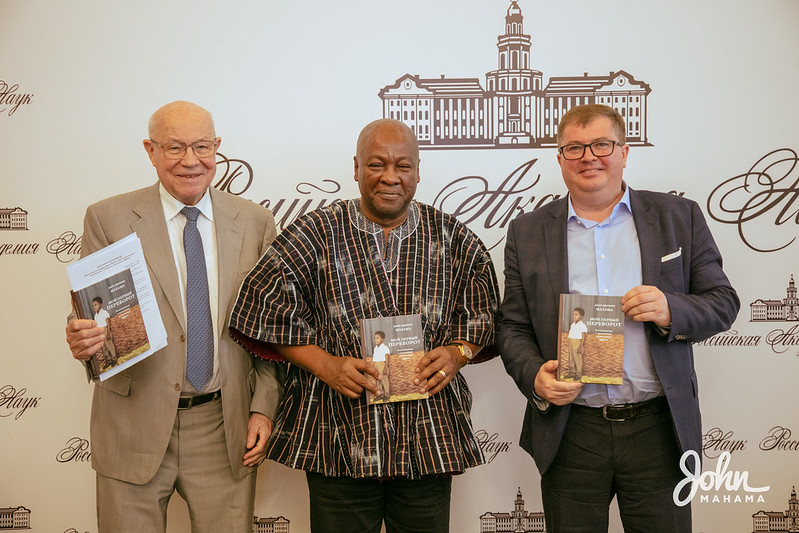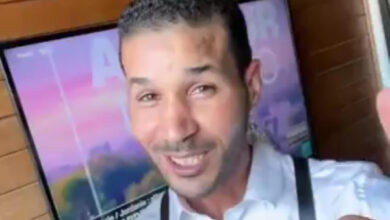Scientists of the Global South, Unite!
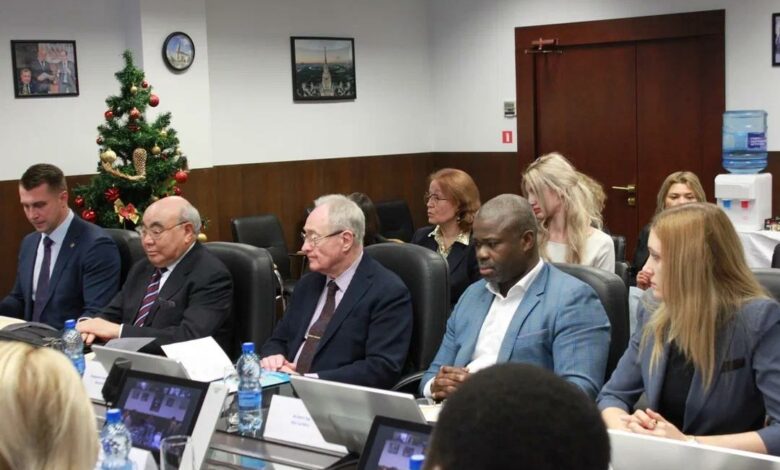
On January 23, 2025, the Faculty of Global Studies of Lomonosov Moscow State
University hosted the International Scientific and Practical Conference “Russia,
Brazil and Africa: Strengthening Cooperation of the Global South” to help
consolidate the intellectual elites of the Global South in search for answers to
global challenges and threats.
The conference was organized by the Faculty of Global Studies of Lomonosov
Moscow State University, Federal University of Rio de Janeiro, Russian-African
Network University, Russian-African Club of Lomonosov Moscow State University
and International Club of Russian-Latin American Studies of Lomonosov Moscow
State University.
The event was held in a hybrid format and brought together leading scholars,
experts and analysts from Russia, Brazil and Africa. The conference was attended
by more than 110 prominent scientists, including 90 foreign participants from 25
countries and more than 20 experts from Russia. The issues discussed included
ways out of the global regulation crisis of international relations, overcoming
monetary asymmetry and imbalances in the global development, countering
climate change and other global processes.
The solemn part of the conference was opened by the Dean of the Faculty of Global
Studies, Professor Ilya Ilyin. In his speech, the Dean welcomed the delegation of
the Federal University of Rio de Janeiro headed by the Rector, Professor Roberto
de Andrade Medroño, as well as all the conference participants, in particular,
representatives of the Moscow State Linguistic University, Diplomatic Academy of
the Russian Federation, Financial University under the Government of the Russian
Federation, Patrice Lumumba Peoples’ Friendship University of Russia, St.
Petersburg Polytechnic University, Plekhanov Russian University of Economics,
Higher School of Economics, and Moscow State University of Economics. Mr. Ilyin
highly appreciated the work of the Russian-African Club of Lomonosov Moscow
State University, thanks to the active work of which an impressive scale has been
achieved in the cooperation with African countries.
Prof. Roberto de Andrade Medroño, Rector of the Federal University of Rio
de Janeiro, made a welcoming speech. He emphasized that the interaction policy
between Russia, Brazil and Africa is successfully developing both in the BRICS
association and within cooperation with the countries of the Global South. The
speaker believes that the domination of the West, which has assumed the role of a
decision-making center in the world, cannot meet the current global trends. It is
necessary to create conditions based on equality, mutual respect and sovereignty
of all peoples.
President of the Egyptian University of Distance Learning, Professor Hisham
Mohamed Abdelsalam emphasized that relations between Russia and Egypt
are rooted in history, which is facilitated by a common vision of global events. The
speaker emphasized that Egypt is working hard to develop a deep educational base
in Africa, which contributes to a collective development on the African continent.
Rector of the University of Carthage, Professor Nadia Mzugi (Tunisia), devoted a
special place in her report to international cooperation in the field of education.
According to Prof. Mzugi, ties in educational projects lay a solid foundation for
strengthening comprehensive cooperation between states and peoples.
Dr. Richard Silumbe, Director of the Center for Research and Development of
Zambia, and graduate of the Russian University supported his colleague. He noted
in particular that the complexity of global challenges, such as climate change,
environmental crises and health crises, requires collective efforts to overcome
them.
Maxim Zalyvsky, the Project Office Head at the Russian-African Network
University, believes that the network-based educational interaction between
parallel structures, such as universities and research centers, is a crucial tool of
international diplomacy.
Director of the National School of Nanoscience and Nanotechnology, Prof.
Hassen Mahmoudi from Algeria sees the main task in training specialists who
are able to contribute to the socio-economic development throughout Africa.
Vice Rector of the Federal University of Rio de Janeiro, Prof. Papa Matar
Ndiaye noted that the university is ready to cooperate in all areas that contribute
to improving the quality of people’s life – health care, energy, industry, ecology
and many others. The expert invited all the participants to the BRICS Universities
Forum to be held in Brazil in November 2025.
Vice Rector of the University of Information and Communications, Professor
Lukumba Phiri from Zambia believes that it is the development of education
and cooperation that plays an important role in the economic and social progress.
Alexander Berdnikov, Executive Secretary of the Russian-African Club of
Lomonosov Moscow State University, spoke about the results of the club’s work
and prospects for its development within the framework of the Global South
policy. According to Mr. Berdnikov, the club’s initiatives to preserve the historical
memory of both Russian history and the history of the African continent are of
particular importance. As an example, he cited the club’s work on opening a
monument to the outstanding South African political leader Nelson Mandela in
Moscow.
Dr. Iheyis Argue, Vice-Rector for Academic Affairs at Debre Marcos University,
spoke about historical aspects of the academic cooperation between Russia and
Ethiopia, emphasizing Russia’s special role in helping Ethiopia gain independence.
Russia stood at the origins of the development of educational infrastructure in
Ethiopia. People of the African country remain grateful for its assistance in the
development of scientific personnel education and training.
Vice-Rector for Academic Affairs and Scientific Research of the International
University of Agadir, Dr. Ilias Maidulin (Morocco) told about a non-
governmental organization established at the university, which is engaged in
programs of affordable education in the poorest regions of Africa, especially in the
field of education for women. More than 94,000 women from poor rural areas
have benefited from this program.
At the end of the welcoming part of the conference the Head of the branch of the
Russian-African Club of Lomonosov Moscow State University in Burkina Faso and
the Confederation of Sahel States, ex-attaché for culture of the Embassy of Burkina
Faso in Russia Timbkieta Daniel Sawadogo took the floor. The speaker
believes it is necessary to strengthen the role of Russia and the BRICS countries in
the information field of African countries in order to shape public opinion based
on mutual respect and equality.
The event continued with a plenary session moderated by Mr. Zalyvsky, Head of
the Project Office of the Russian-African Network University, and Mr. Berdnikov,
Executive Secretary of the Russian-African Club of Lomonosov Moscow State
University.
The plenary session began with a report by Mr. Askar Akaev, academician,
foreign member of the Russian Academy of Sciences, professor at Lomonosov
Moscow State University, President of the Kyrgyz Republic (1991-2005). The
Academician expressed his opinion, based on a deep scientific analysis that BRICS
exists to advance human civilization on the path of progress. Mr. Akaev expressed
confidence that cooperation within BRICS, based on the principles of equality and
mutual respect, will enable the countries to confront various challenges, including
political, climatic and other problems of modern times.
Prof. Rasigan Maharaj, Director of the Institute of Economic Research and
Innovation, Zwana University of Technology, South Africa, opined that the BRICS
Plus grouping is an extended family of nations, which constitutes 64% of the
world’s population, i.e. the global majority. Therefore, there is a need to address
collectively critical global issues by creating an environment that would respect the
interests of all peoples.
The topic of environment and climate change was continued by Marina
Amurskaya, Head of the Department of International Business, Faculty of
International Economic Relations, Finance University under the Government of
the Russian Federation. The expert spoke about the development of low-carbon
initiatives within BRICS. According to Mr. Amurskaya, the existing BRICS
initiatives and agreements have practical significance and create prerequisites for
real steps to combat climate change in the future.
Prof. Daniel Barreiros, an expert in economics from the Federal University of
Rio de Janeiro, believes that a special responsibility amid the new circumstances
rests on the interdisciplinary cooperation in science and education, which is the
foundation for the comprehensive cooperation both with the countries of the
Global South and other regions.
Galina Sidorova, Professor at the Diplomatic Academy of the Russian Ministry
of Foreign Affairs and Moscow State Linguistic University, leading researcher at
the Institute of Africa of the Russian Academy of Sciences, emphasized that the
stability of Russian-African relations will depend on many factors, including
international security, reduction of the conflicts’ intensity on our planet as a whole,
as well as establishment of partnership and trusted ties.
Associate Professor of Sol Plaatje University (South Africa) Dr. Raymond
Nkwenti Fru expressed confidence that in modern conditions Africa is able to
overcome the negative consequences inherited from the colonial regime and take
responsibility for its future in the emerging multipolar world.
Associate Professor of the Department of Theory and History of International
Relations at the Patrice-Lumumba University of Foreign Affairs, Yao Nicaise
Adu, outlined the prospects for strengthening cooperation between Russia,
African countries and Brazil in the current conditions. The speaker expressed his
gratitude to Russia for its firm support for the inclusion of Africa in the UN
Security Council.
Inga Koryagina, Director for International Development of the Russian-African
Club of Lomonosov Moscow State University, Associate Professor of Marketing
Department at Plekhanov Russian Economic University, shared a presentation on
the activities of the Russian-African Club of Lomonosov Moscow State University,
which, according to the speaker, is a platform for global international cooperation.
By creating inclusive platforms for dialogue between scientists, entrepreneurs,
youth representatives and cultural figures, the club identifies and promotes
opportunities for cooperation that contribute to sustainable development and
shared success.
Olga Ignatova, Associate Professor of the International Business Department of
the Faculty of International Economic Relations of the Financial University under
the Government of the Russian Federation, held her report on the prospects for
the development of trade and economic relations between Russia and Brazil. She
opined that these relations between the two countries need to be diversified. Mr.
Ignatova believes that Russia faces the task of increasing high-tech products
exports and abandoning raw material orientation.
Dr. Lubinda Haabazoka, Director of the Graduate School of Business,
University of Zambia, spoke about the main investment projects of Russia, Brazil
and other BRICS countries in Africa. The speaker considers the lack of information
between Africa and Russia about each other to be the biggest constraint in the
development of investment projects in Africa.
Maxim Kazanin, Associate Professor of the International Business Department,
Faculty of International Economic Relations, Finance University under the
Government of the Russian Federation, presented an overview of the global
economic situation. According to Mr. Kazanin, cooperation with Russia, which has
the technology and capabilities to improve the regional economy of African
countries, is of particular relevance for the countries of the Global South.
Associate Professor of the Department of Foreign Regional Studies at Lomonosov
MSU Maria Kolesnikova emphasized that Russia has the richest school of
African studies and vast experience, which should be used in Russian-African
cooperation.
Associate Professor of the Department of International Relations and Foreign
Policy of Russia at Lomonosov MSU Sergey Belyaev spoke about the role of
humanitarian and cultural cooperation in the relations between Russia and the
Global South. Religious factor plays an important role in the countries of the
Global South, hence the cooperation in this area should be developed as well, the
expert believes.
Dr. Hafian Ouannes, Director of the Laboratory “Language and Forms of
Culture” at the University of Carthage (Tunisia), introduced the participants to the
strategy of scientific research in Tunisia. In his opinion, humanities research in the
fields of languages, literature and arts is the basis for peoples’ understanding of
each other, intercultural communication and rapprochement.
Concluding the plenary session, Ruslan Grebnev, Deputy Dean of the Faculty of
Global Studies at Lomonosov Moscow State University, emphasized that from the
point of view of global studies, the theme of the conference is very important.
According to the expert, in a multipolar world, the “pole” concept means a state
pursuing its independent foreign policy, and we see such poles are emerging more
and more.
The youth session of the conference – the Tribune of Young Scientist – was held at
the end of the plenary session. It was moderated by Mrs. Koryagina, Director for
International Development of the Russian-African Club of Lomonosov Moscow
State University, Associate Professor of the Marketing Department of Plekhanov
Russian Economic University, and Basi Hafiz, Chairman of the Youth Policy
Commission of the Russian-African Club of Lomonosov Moscow State University.
Basi Hafiz presented a keynote speech on “Youth initiatives in education as a
driver of cooperation between Russia and Africa”. During his report, the speaker
told about youth projects and activities of the Russian-African Club of Lomonosov
Moscow State University. Among the executed projects he noted the Youth Day of
Africa, participation in the shooting of the documentary film “Nelson Mandela:
The Path to Freedom”, as well as participation in international conferences and
forums.
During the session, young scientists from universities in Russia, Brazil and Africa
presented their papers in English and offered their response options to global
challenges and threats facing humanity. Thus, the young intellectual elite of the
Global South is already being formed and consolidated.
All participants of this big international conference noted the high significance of
the event in strengthening international ties and future joint initiatives between
the countries of the Global South. The organizers expressed their hope that such
meetings will become regular and will lay the foundation for new initiatives in the
field of international cooperation, contributing to the strengthening of mutual
understanding and cultural exchange between countries.
Source: Louis Gouend | Contributor

